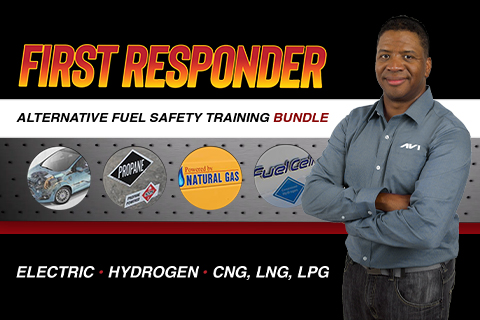Description
A variety of factors in today’s transportation arena are making alternative fuel vehicles more common on our nation’s roadways. With increased use of electric drive, propane, natural gas, and hydrogen vehicles, the chance of these new technologies being involved in a vehicular accident also increases.
First Responders need to be trained on the differences between these vehicles and their conventionally-fueled counterparts and on the proper procedures for safely addressing incidents involving them. This course is designed to educate firefighters on the properties of and procedures to follow when dealing with these advanced technology vehicles.
The subjects covered in this course include:
- Understand the properties of alternative fuel vehicles, including unique components and charging systems.
- Recognize the differences between alternative fuel vehicles and their conventionally powered gasoline and diesel counterparts.
- Identify the risks and hazards common to alternative fuel vehicles and their fuel system and high-voltage components.
- Be aware of the proper personal protective equipment needed.
- Understand how to identify an alternative fuel vehicle from its more conventionally fueled counterpart.
- Recognized the additional standard operating procedures (SOPs) to be added to your department’s current guidelines when dealing with an alternative fuel vehicle.
- Learning skills to be applied to incidents involving alternative fuel vehicles including scene evaluation and control, vehicle disabling, extrication, and fire suppression.
Courses Included:
- Electric Vehicle Safety Training for First Responders
- Hydrogen Fuel Cell Vehicle Safety Training for First Responders
- Gaseous Fuel Vehicle Safety Training for First Responders
If you would like to book a live training session, Click here for more information.


